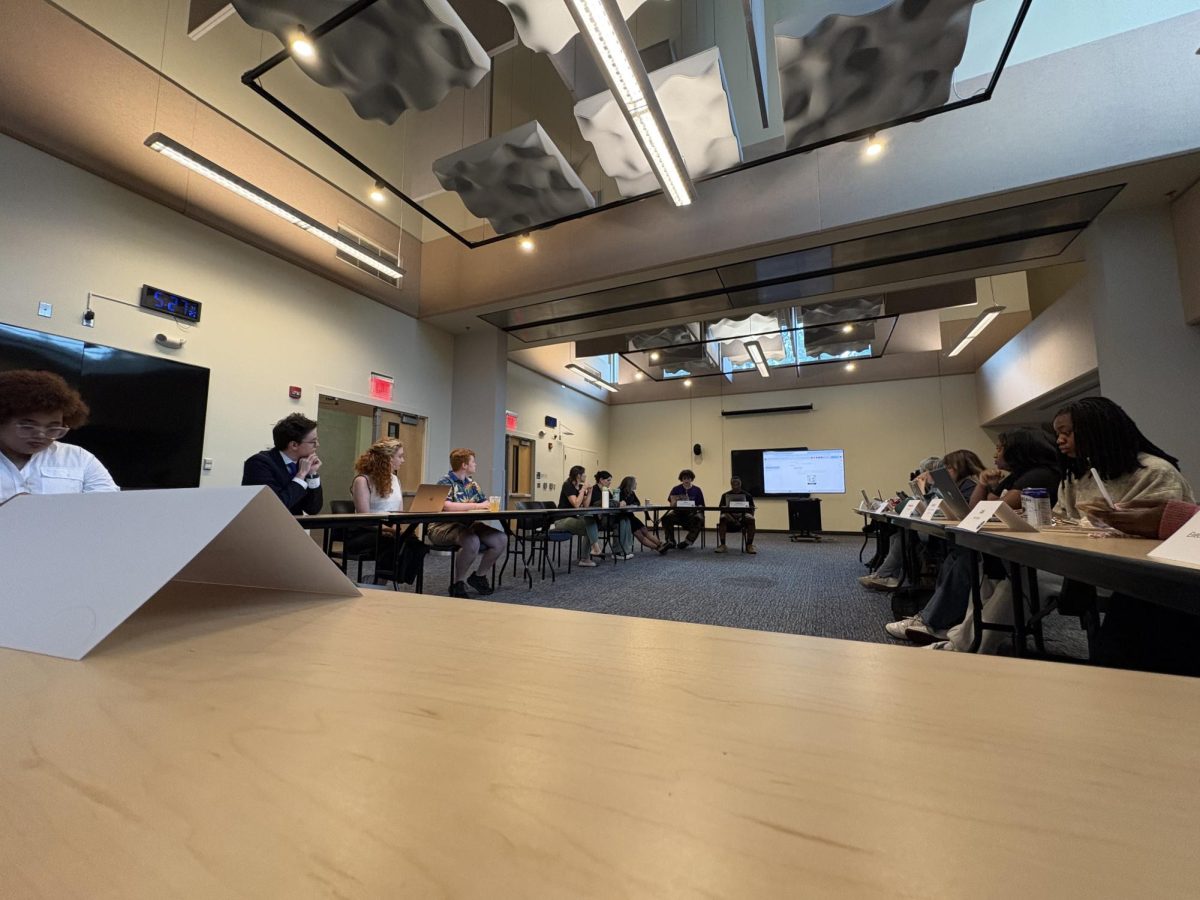By Katie Devoe
Assistant News Editor
[email protected]
Dark hardwood floors line the spacious living room and kitchen area in the virtual simulation of the new apartment-style residence halls being constructed on UNC Asheville’s campus.
Vollie Barnwell, director of housing and campus life operations, said the free app Gazal allows people to see a virtual tour of the apartments.
“These will have true living rooms, full kitchens with a range, microwave, full-size refrigerator, countertops and cabinets. It’ll be a full apartment, like if you lived at University Place or Sevier Street or somewhere else,” Barnwell said.
The community of apartment-style residence halls was recently named The Woods, Barnwell said. The individual names of the apartments are Aspen Hall, Beech Hall, Cedar Hall, Chestnut Hall, Magnolia Hall and Willow Hall.
Barnwell said students advised the process of planning these new residence halls.
“Initially, when the project was first conceived it was all single rooms. It was all four-person apartments with everyone having their own bedroom. As we started talking with students, what we heard from students was there’s some times where we would like to live with five people,” Barnwell said.

The discussions with students led for plans to include a mix of single and double rooms. The apartments will have 234 single rooms and 30 double rooms, Barnwell said.
The option of a double room helps with affording to live in the apartments.
“The other thing that our students were concerned about or mentioned were there are some people who would like to live in the new residence halls that can’t afford a single room, but they would still like to live there,” Barnwell said.
Many of the housing policies from Residential Education still apply in the apartment community.
“We’re getting these questions a lot, especially related to pets and other housing policies,” Barnwell said. “And these are on campus residence halls, so a lot of the same policies that we have to abide by with Governors Hall or Mills Hall will be the same there. The same pet policies that we have now will carry on over there. The same noise policies we have now will carry on over there.”
However, Residential Education does not plan to have a large presence in the apartments. Melanie Fox, director of residential education, said there will be five resident assistants in the new buildings.
“They’re going to need to know the students, but its not to the same level that you currently are required in other residence halls,” Fox said.
Similar to Governors Village, Barnwell said the apartments will not have duty desks for RAs to monitor the front door.
Students view the apartments with mixed opinions because many of them want different living conditions. Anna Lee Skinner, a junior English and psychology student, said she was not exactly sure about housing for next year.
“I’m studying abroad in the fall and then probably living off-campus if I possibly can, maybe the new apartments if I can’t,” Skinner said. “If the regulations are as strict though, that kind of sucks.”
Skinner said she did not know the exact policies that would apply to the new apartments and she wanted to live with a male friend. Unfortunately, Residential Education cannot allow co-ed living arrangements.
“There is currently a state statute that prohibits co-ed living within residence hall units,” Fox said.
Off-campus apartments cannot regulate if co-ed groups of people live together and some other states allow co-ed groups to live together on university campuses.
Currently, the apartments are on track to open in the fall of 2018 and the furniture will be moved in during July, Barnwell said.
During late February, the room selection process for on-campus housing will start with the housing application and later in March rising juniors and seniors will have the earliest time to select their rooms.
The promise of apartment-style halls remains an exciting prospect, Fox said.
“I believe more returning students will want to stay on campus now and I think that changes the atmosphere of the residence halls and the campus community in a positive way,” Fox said. “So I think it gives students an option to maintain the on-campus advantage when they get to that point, where you know, ‘I’d really like to cook for myself, but I’d also really like to stay on campus, but I just don’t have that option.’”


















